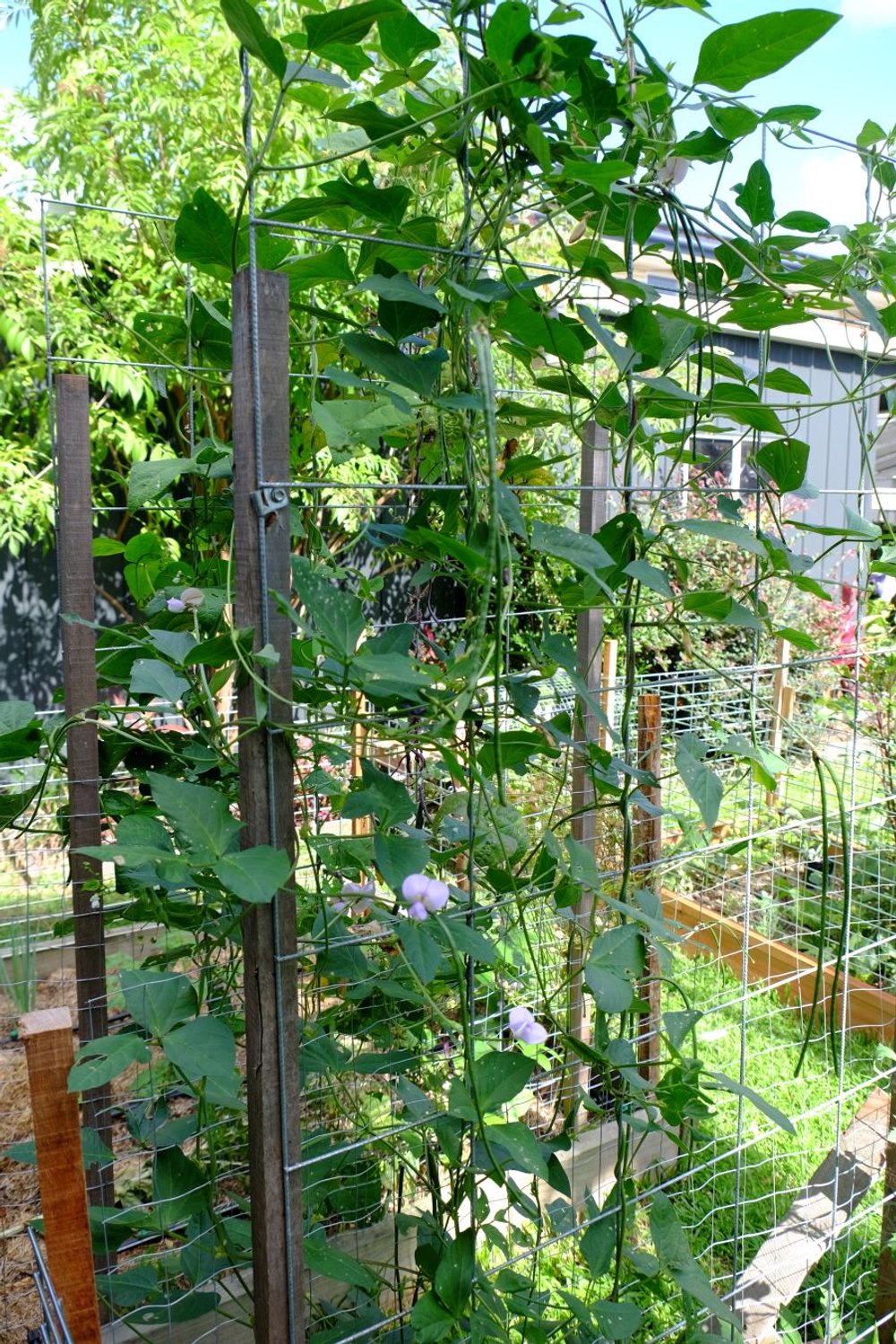Snake Beans
Have you tried snake beans? Or you might know them as yard-long beans. They’re the really really long beans you occasionally see in fruit and veggie stores, or in Asian grocery stores. Granted not quite a yard, but still pretty long.
A pair of snake beans ready to pick! If you look close you can see the tip of the vine that will keep growing.
Originating from south-east Asia, they are THE bean to grow in summer if you live anywhere hot and humid, and whilst they may not be the bean of choice to steam with a knob of butter, they go perfectly in curries and stir-fries. Snake beans don’t succumb to the same fungal diseases as regular green beans do in the heat, and they also stay fresh a lot longer in the fridge (which is good, because you’ll be picking them every 2 days!).
Snake beans (Vigna unguiculata subsp. sesquipedalis) are in a different genus to regular green beans (Phaseolus vulgaris). Most of the beans we eat (green beans, French beans, butter beans and dried beans like borlotti, lima, navy and cannellini) are all related in the Phaseolus genus - mostly vulgaris species but there are a couple of others. Snake beans; however, are very closely related to cowpeas and black-eyed beans (the same species!), and the same genus as adzuki and mung beans or beansprouts.
Seeds are best sown in warmer months and will germinate within days. Keep the plants moist, but not drowned (they are used to summer rains) and you’ll be picking beans about two months after sowing. Usually each flower gives way to two beans and the stalk will keep producing, so I find twisting them off gently at the base is the best. They are reasonably vigorous climbers so give them somewhere to scramble up. I’ve tried some dwarf varieties but they aren’t nearly as prolific and taste the same so unless you’re really tight for space, the regular ones are the best.
At the end of the season as it starts to cool off, I find I get rust starting on the plants but that means it’s time to pull them up and replace with a winter crop. There’s always the odd bean you miss while picking that’s too fat and tough to eat - let these guys dry out and you’ll have seeds for next year!
I think snake bean flowers look like a purple mickey mouse…


